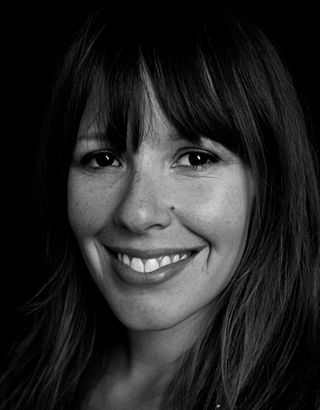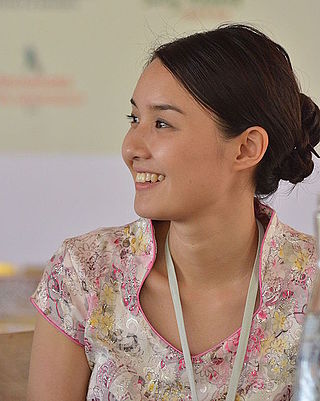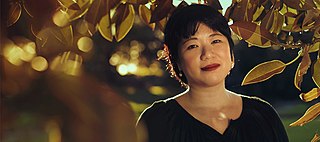Related Research Articles

Helen Garner is an Australian novelist, short-story writer, screenwriter and journalist. Garner's first novel, Monkey Grip, published in 1977, immediately established her as an original voice on the Australian literary scene—it is now widely considered a classic. She has a reputation for incorporating and adapting her personal experiences in her fiction, something that has brought her widespread attention, particularly with her novels Monkey Grip and The Spare Room (2008).
Carrie Tiffany is an English-born Australian novelist and former park ranger.
Charlotte Wood is an Australian novelist. The Australian newspaper described Wood as "one of our [Australia's] most original and provocative writers".
Gail Jones is an Australian novelist and academic.
Alexis Wright is a Waanyi writer best known for winning the Miles Franklin Award for her 2006 novel Carpentaria and for being the first writer to win the Stella Prize twice, in 2018 for her "collective memoir" of Leigh Bruce "Tracker" Tilmouth and in 2024 for Praiseworthy.Praiseworthy also won her the Miles Franklin Award in 2024, making her the first person to win the Stella Prize and Miles Franklin Award in the same year.

Chloe Melisande Hooper is an Australian author.

Tara June Winch is an Australian writer. She is the 2020 winner of the Miles Franklin Award for her book The Yield.
Sophie Cunningham is an Australian writer and editor based in Melbourne. She is the current Chair of the Board of the Australian Society of Authors, the national peak body representing Australian authors.

Alice Pung is an Australian writer, editor and lawyer. Her books include the memoirs Unpolished Gem (2006), Her Father's Daughter (2011) and the novel Laurinda (2014).

Melissa Lucashenko is an Indigenous Australian writer of adult literary fiction and literary non-fiction, who has also written novels for teenagers.

Eileen Chong is an Australian contemporary poet.
Tony Birch is an Aboriginal Australian author, academic and activist. He regularly appears on ABC local radio and Radio National shows and at writers’ festivals. He was head of the honours programme for creative writing at the University of Melbourne before becoming the first recipient of the Dr Bruce McGuinness Indigenous Research Fellowship at Victoria University in Melbourne in June 2015.
Ellen van Neerven is an Aboriginal Australian writer, educator and editor. Their first work of fiction, Heat and Light (2013), won several awards, and in 2019 Van Neerven won the Queensland Premier's Young Publishers and Writers Award. Their second collection of poetry, Throat (2020), won three awards at the 2021 New South Wales Premier's Literary Awards, including Book of the Year.

Too Much Lip (2018) is a novel by Australian author Melissa Lucashenko. It was shortlisted for the 2019 Victorian Premier's Literary Award for Indigenous Writing and the Stella Award. It was the winner of the 2019 Miles Franklin Award.
Vikki Wakefield is an Australian author who writes adult and young adult fiction.
Anna Krien is an Australian journalist, essayist, fiction and nonfiction writer and poet.
The Victorian Premier's Prize for Indigenous Writing is a prize category in the annual Victorian Premier's Literary Award. The award commenced in 2004 and in 2012 the prize was valued at A$20,000. The winner of this category prize competes with the other category winners for overall Victorian Prize for Literature valued at an additional A$100,000. Nominees are allowed to enter other categories of the Victorian Premier's Literary Awards.
Louise Milligan is an Australian author and investigative reporter for the ABC TV Four Corners program. As of March 2021, she is the author of two award-winning non-fiction books. Her first novel, Pheasants Nest, was published in 2024.
Laura Jean McKay is an Australian author and creative writing lecturer. In 2021, she won the Victorian Prize for Literature and the Arthur C. Clarke Award for her novel The Animals in That Country.
Jennifer Down is an Australian novelist and short story writer. She won the 2022 Miles Franklin Award for her novel Bodies of Light.
References
- ↑ Wood, Charlotte (23 July 2005). "Traumascapes". The Age.
- ↑ Dessaix, Robert (19 April 2010). "Otherland: A Journey with My Daughter". Sydney Morning Herald.
- 1 2 "Maria Tumarkin". Australian Research Council Centre of Excellence for the History of Emotions. Retrieved 8 April 2019.
- 1 2 "Maria Tumarkin". Archived from the original on 10 October 2021. Retrieved 8 April 2019.
- ↑ Wood, Charlotte (23 July 2005). "Traumascapes". The Age.
- ↑ Taylor, Anna Frey (31 July 2014). "Why This American Life falls short for writer Maria Tumarkin". ABC Australia.
- ↑ "A selection of my recent essays". Maria Tumarkin. Retrieved 8 April 2019.
- ↑ "'Against Motherhood Memoirs', Dangerous Ideas about Mothers". Maria Tumarkin. Retrieved 8 April 2019.
Extract from Dangerous Ideas about Mothers, edited by Camilla Nelson and Rachel Robertson.
- ↑ Steger, Jason (2 September 2015), "Five writers vie for $60,000 Melbourne Prize", Sydney Morning Herald , retrieved 11 July 2016
- ↑ Where are all the great Australian essays?, 24 February 2016, Sydney Morning Herald
- ↑ "Lester wins $60,000 Melbourne Prize for Literature; Tumarkin wins Best Writing Award". Books+Publishing. 15 November 2018. Retrieved 7 January 2019.
- ↑ "Victorian Premier's Literary Awards 2019 shortlists announced". Books+Publishing. 12 December 2018. Retrieved 12 December 2018.
- ↑ Nelson, Camilla (8 April 2019). "Stella prize 2019: your guide to the shortlist". The Guardian. Retrieved 8 April 2019.
Co-published with The Conversation
- ↑ Nelson, Camilla (8 April 2019). "Six books that shock, delve deeply and destroy pieties: your guide to the 2019 Stella Prize shortlist". The Converstation. Retrieved 8 April 2019.
- ↑ Perkins, Cathy (Summer 2019). "Excellence in Literature and History". SL Magazine. 12 (4): 52–55.
- ↑ Alice, Jessica (19 March 2020). "Maria Tumarkin on winning the 2020 Windham Campbell: 'It feels like a complicated gift'". The Guardian. ISSN 0261-3077 . Retrieved 20 March 2020.